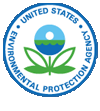 PEP BOYS AGREE TO PAY $5 MILLION TO RESOLVE CLEAN AIR ACT VIOLATIONS CLAIMS
PEP BOYS AGREE TO PAY $5 MILLION TO RESOLVE CLEAN AIR ACT VIOLATIONS CLAIMS
Largest importation case in Clean Air Act history
WASHINGTON -- The Pep Boys - Manny, Moe & Jack - have agreed to take corrective measures and pay $5 million in civil penalties to settle claims that it violated the Clean Air Act by importing and selling motorcycles, recreational vehicles and generators manufactured in China that do not comply with environmental requirements, the U.S. Environmental Protection Agency (EPA) and the U.S. Justice Department announced today. Baja, Inc., which supplied the non-compliant vehicles to Pep Boys, is also settling with the
"Equipment imported into the United States that does not meet our pollution control rules is bad for human health and the environment, and unfair to those companies that play by the rules," said Cynthia Giles, assistant administrator for EPA's Office of Enforcement and Compliance Assurance. "American consumers deserve products that meet standards and protect their health and environment."
"Importers of foreign made vehicles and engines must comply with the same Clean Air Act requirements that apply to those selling domestic products, and this settlement demonstrates that we will take strong action to ensure that importers comply with their obligations," said Ignacia S. Moreno, Assistant Attorney General for the Environment and Natural Resources Division. "Under this settlement Pep Boys and Baja will not only pay a civil penalty, but will offset the excess emissions from the vehicles and engines already sold and take steps that go beyond what the law requires to ensure that their future imports and sales meet Clean Air Act standards."
This is the largest vehicle and engine importation case brought by the
The agreement requires Pep Boys to export or destroy over 1,300 non-compliant vehicles and engines, and to mitigate the adverse environmental effects of equipment already sold to consumers, estimated at 620 tons of excess hydrocarbon and nitrogen oxide emissions, and more than 6,520 tons of excess carbon monoxide emissions. Under the settlement, Pep Boys will implement projects to offset the excess emissions including offering discounted push or electric lawn mowers in exchange for older, more polluting gas-powered mowers.
Motorcycles, recreational vehicles, and generators emit carbon monoxide, a gas that is poisonous at high levels in the air even to healthy people and is especially dangerous to people with heart disease. These machines also emit hydrocarbons and nitrogen oxides, which contribute to the formation of ground-level ozone, or smog. Exposure to low levels of ozone can cause respiratory problems, and repeated exposure can aggravate pre-existing respiratory diseases.
The complaint alleges that at least 45 vehicle and generator models imported and sold by Pep Boys and Baja were not certified to meet federal emission standards. The complaint also alleges that Pep Boys failed to provide purchasers with the full emission-system warranty required by the Clean Air Act, and imported and sold vehicles and engines without the proper emission control information labels.
The vehicles and engines were built by more than 35 different manufacturers in
The settlement also requires Pep Boys and Baja to offer a free extended emission warranty on certain vehicle and engine models, to reimburse consumers for emission-related repair expenses, and to implement rigorous corporate compliance plans. Baja also agreed to pay a penalty of $25,000, an amount that was reduced substantially in light of Baja's current financial condition.
The settlement is part of an ongoing effort by EPA to ensure that all imported vehicles and engines comply with Clean Air Act requirements.
Pep Boys is a national automotive aftermarket and service chain with annual sales of $1.9 billion. The company operates more than 580 stores in 35 states and
Baja, based in
The settlement, lodged today in the U.S. District Court for the
More information on the settlement: www.epa.gov/compliance/resources/cases/civil/caa/pepboys.html
For citizens who want to report environmental violations: http://www.epa.gov/tips
